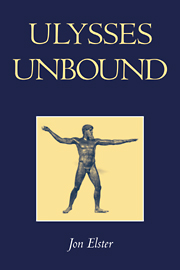Coda
Published online by Cambridge University Press: 07 December 2009
Summary
This book has not been an argument for a thesis but an exploration of some themes. The particular way in which examples and mechanisms are bunched together to yield a “theme” is somewhat arbitrary. In Chapters I and II, the analyses relied on the dual perspective of rationales and devices for precommitment, a perspective that could also be applied to Chapter III. Rather than pursuing this classification, however, I shall use somewhat different and generally less technical categories to impose some kind of order on the cases covered in the previous chapters. It is emphatically not a summary, but rather a reflection on the case studies. Although at the end of the day I still do not have anything like a systematic account, some of the categories might find a place among the building blocks of a theory of constraints.
TEMPTATIONS
Often, we precommit ourselves in order to avoid temptation, or to make ourselves unable to succumb to it when we meet it. The varieties of temptation I have discussed in this book are numerous and diverse. There is, for instance, the temptation to do nothing or to postpone unpleasant tasks until tomorrow. The smoker who wants to give up cigarettes or the person who thinks he ought to save for his old age are both vulnerable to procrastination. “Give me chastity and continence, but not yet.”
- Type
- Chapter
- Information
- Ulysses UnboundStudies in Rationality, Precommitment, and Constraints, pp. 270 - 282Publisher: Cambridge University PressPrint publication year: 2000



